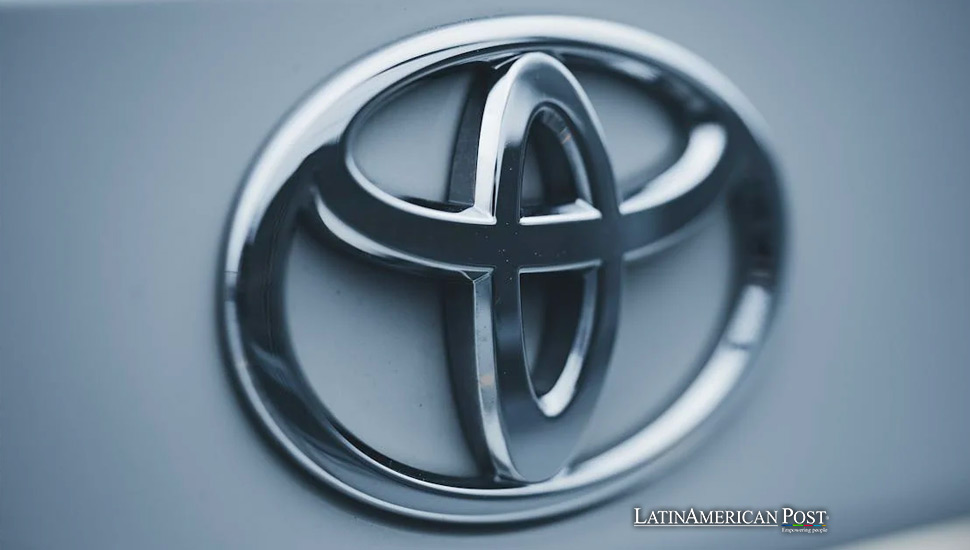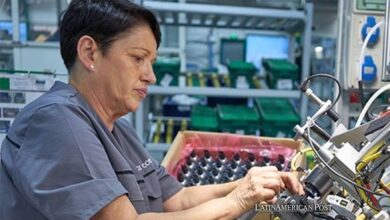Toyota’s Bold $2.2 Billion Bet on Brazil: Driving South American Auto Innovation

Toyota is set to infuse Brazil’s automotive sector with a significant $2.2 billion investment, promising job creation, and the launch of new models, marking a pivotal moment for the industry in South America.
Toyota’s Ambitious $2.2 Billion Investment in Brazil
In a move that signals both confidence and commitment to the South American market, Japanese automotive giant Toyota is poised to announce a staggering 11 billion real ($2.2 billion) investment in Brazil. This ambitious initiative, set to be unveiled at Toyota’s manufacturing facility in Sorocaba, Sao Paulo, is a testament to the country’s growing importance as a hub for automotive innovation and production in the region.
The investment announcement, eagerly anticipated by the industry and the public, comes when Brazil’s automotive sector is witnessing renewed interest from global players. Toyota’s decision to channel substantial resources into the country underscores the strategic significance of Brazil not just as a market but as a center for manufacturing excellence and technological development in Latin America.
Geraldo Alckmin Highlights Job Creation and Economic Revitalization
Vice-President and Minister for Industry Geraldo Alckmin took to social media to herald the upcoming investment, highlighting its potential to generate 2,000 new jobs and introduce fresh models to the market. This move is particularly notable in Brazil’s ongoing efforts to revitalize its economy and bolster employment in critical sectors.
According to reports by local newspaper O Globo’s columnist Lauro Jardim, Toyota’s investment will focus on expanding the production capabilities of the Sorocaba unit, with plans to manufacture a hybrid car and a sport utility vehicle (SUV). While specific models were not disclosed, the emphasis on hybrid technology aligns with global automotive trends toward more environmentally sustainable transportation solutions.
Toyota’s investment in Brazil is part of a broader wave of automotive industry commitments this year, with Volkswagen, General Motors, and Hyundai Motor also announcing significant expansions. This collective surge in investment highlights Brazil’s role as a pivotal player in the global automotive landscape, capable of attracting major international manufacturers with its combination of a skilled workforce, a sizeable domestic market, and a strategic geographical location in South America.
Beyond the immediate economic benefits of job creation and increased production capacity, Toyota’s investment is poised to have far-reaching effects on Brazil’s automotive sector and its position in the region. By focusing on advanced technologies such as hybrid vehicles, Toyota is not only contributing to the diversification of Brazil’s automotive offerings. Still, it is also helping to drive the industry toward more sustainable and innovative practices.
Toyota’s Recognition of Latin America’s Automotive Potential
Moreover, Toyota’s commitment to Brazil reflects a growing recognition of Latin America’s potential as a critical market and production base for the automotive industry. With countries across the region seeking to attract foreign investment and boost local manufacturing, initiatives like Toyota’s can serve as a blueprint for future collaborations between global automakers and Latin American nations.
Also read: Brazilian-Chinese Consortium Wins Bid for Major Railway Project Linking Sao Paulo to Campinas
As Brazil and its neighbors continue to navigate the challenges and opportunities of the global automotive industry, Toyota’s $2.2 billion investment stands as a bold statement of faith in the region’s potential. It underscores the importance of innovation, sustainability, and international cooperation in shaping the future of transportation, not just in Brazil or South America but worldwide. As the details of this landmark investment are unveiled, the automotive world will watch closely, eager to see how Toyota’s bet on Brazil will drive the industry’s evolution in the region.





